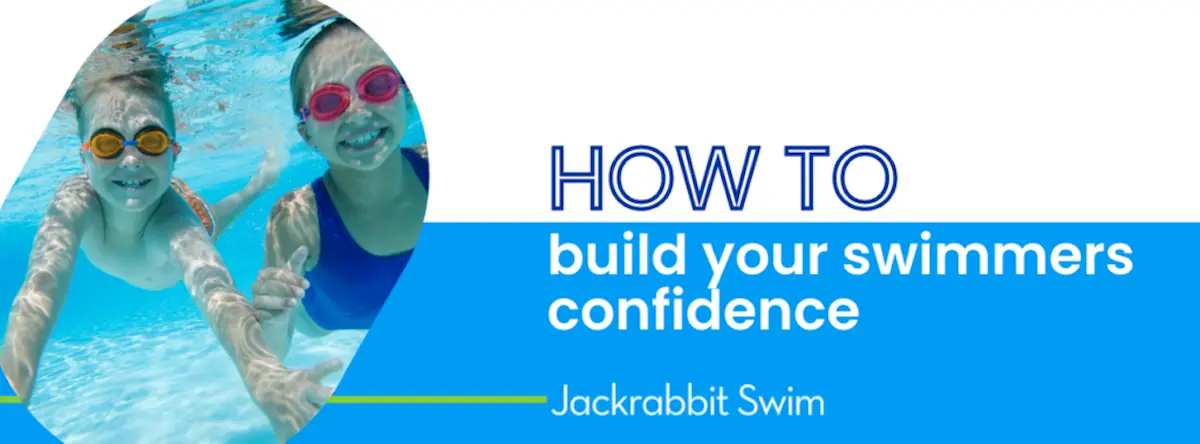Ask most parents who have put their child in swim lessons and they will tell you that one of the biggest hurdles is helping their child gain confidence in and around water.
Whether a child is a first-timer or has experience in the water, it can be difficult to get them back on track after a hiatus. Many children lack the confidence to jump right back into the sports they used to love, and some may feel weary trying new sports altogether. This is where your opportunity as a swim instructor lies!
Building confidence in children is often easier said than done, and parents and teachers will often consult to see how a combined effort can help their child. The good news is, there are several things you can work on to help young swimmers enjoy being in the water and boost their confidence in sports.
5 Ways You Can Help Your Swim Students Gain Confidence
Repetition
Children often feel nervous when placed in new environments. Whether it is the act of arriving at the pool, dipping their toes in, or going underwater, the more you repeat these actions, the sooner the child will get used to it. Once your child has passed the first hurdle of getting used to the new situation, you can begin to work on more difficult things.
If you want your children to feel confident in their swim skills, let them practice. Don’t be afraid to jump in the water with them. Whether you are a teacher or their parent, having you nearby will help them feel safe enough to practice swimming. As children start practicing their swim strokes, they will build their proficiency and it boosts their confidence.
Fun
If you want to build a child’s confidence in swimming, you must first ensure that the activity is enjoyable.
With younger kids, learning to feel comfortable in the water begins with bath time. You can use a bubble bath and water toys to make bath time super fun and enjoyable.
As children get older, you can gradually introduce them to the pool and start their introduction to swimming. Not all swimmers are naturally confident and by forcing a child into the deep end too early will be detrimental to their confidence or willingness to learn to swim.
Instead, gradually ease children into the water. Start by playing at the shallow end of the pool. If they are old enough, there are several games you can play with your child. Pass a ball back and forth, play water tag, or give them goggles and ask them to search for plastic fish toys.
Instead of throwing them in the deep end and asking them to start swimming, try to encourage children to see the water as a place where they can have fun, laugh, and play. Fun is one of the best ways to build confidence in children and as we all know, prioritize fun and learning will follow. So, if children enjoy their time in the water, they will be more willing to try out swim lessons or a new stroke.
Skill Building
Perhaps one of the best ways to build confidence in children in sports and swimming is by helping them develop their skills. The more skills a child masters, the more confident they will be in the water. You can help them practice some of the swimming skills they have already acquired and foster new skills with group or private swim lessons.
As children get better and better, they will feel more confident and their feelings of achievement will make them proud of themselves. This leads to a desire to continue their swim education.
Safety
With drowning being one of the leading causes of accidental death in children, it is beneficial to introduce a child to water in a safe way from a young age.
Teaching children how to be safe in and near the water is essential. Building confidence in your swimmers can only be achieved if children feel safe to start swimming. Children should know the dangers water poses and they should understand that learning how to swim is important.
Support
Children need the support of an authority figure to gain the confidence to step out of their comfort zone. They need to know that you will help them succeed in a safe and protected environment and be able to come to you for advice.
An important part of learning is showing children that you will not be judgemental or critical. They will make mistakes, and they will be afraid to jump in the water, and chances are, they will regress at some point in their learning journey.
Remember that showing empathy, compassion, and understanding when a child is scared will get them much further than showing them negative emotions. Your support and encouragement are crucial in helping build your swimmer’s confidence. So make sure you showcase that you are the child’s greatest advocate and supporter every chance you get.
Ready? Set. Go!
Are you ready to take the first steps in building a new or returning swimmer’s confidence? Whether you are a teacher or a parent, you are an important part of the child’s journey as they learn to swim.
If you have just finished reading this article, you are already on your way to being a great advocate for a young swimmer. Trust us; you can help children become confident swimmers.
All it takes is some patience, love, and a dash of fun on the side!
Interested in getting more tips straight to your inbox? Sign up for the Jackrabbit Class Ears Up newsletter. It’s your ticket to a thriving business.






